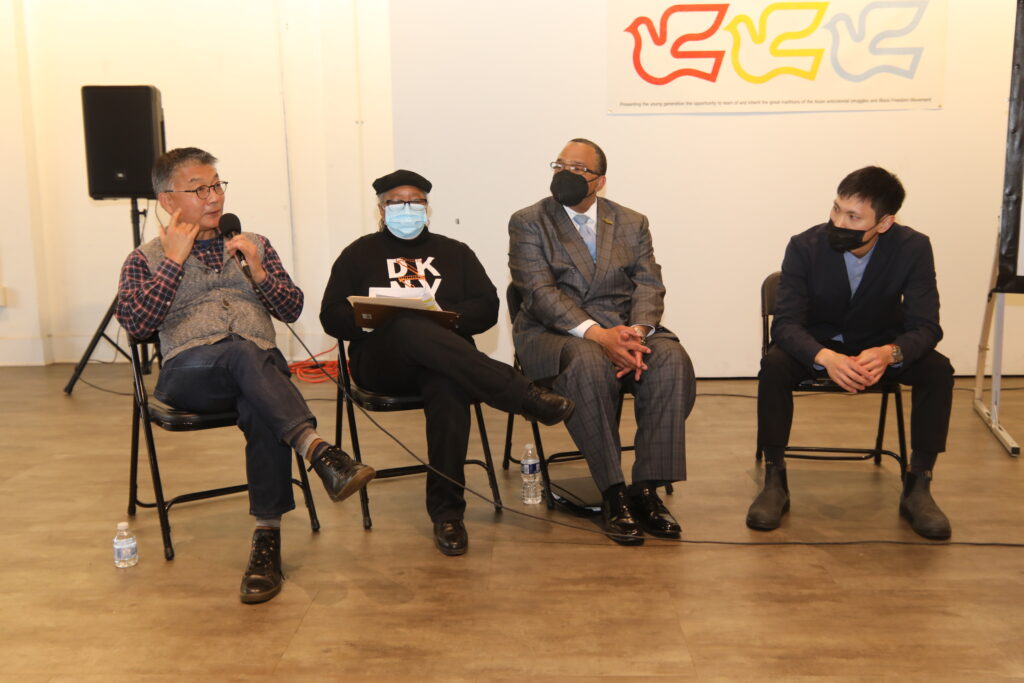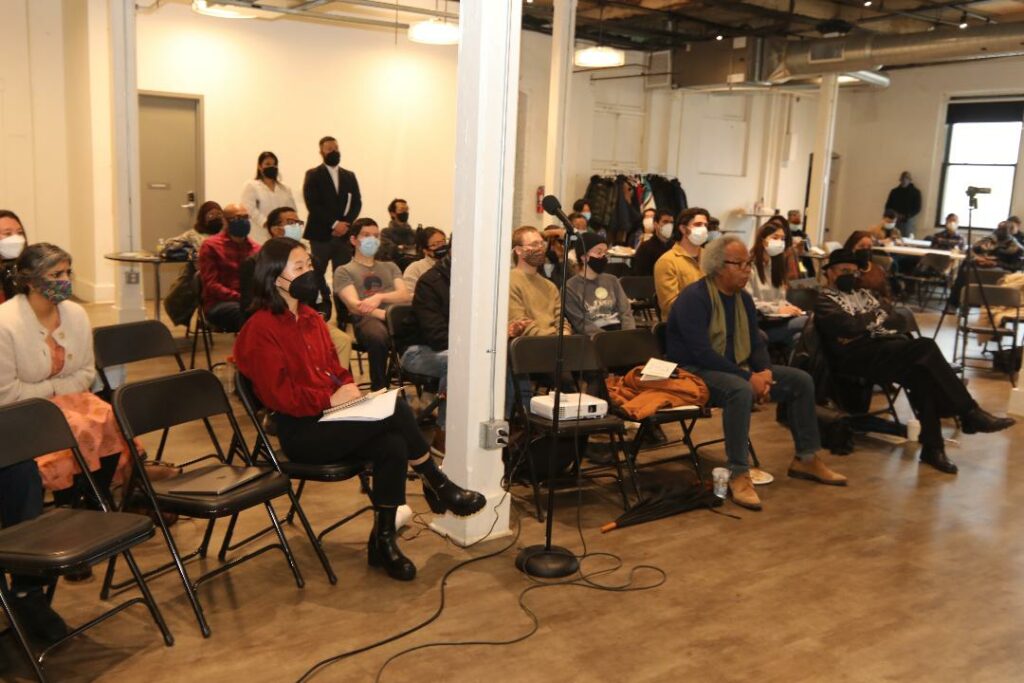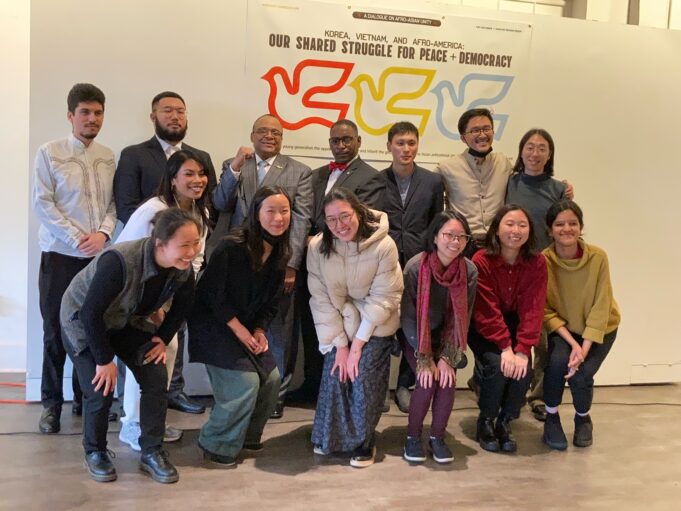PHILADELPHIA—Unfazed by a powerful snowstorm and inclement weather, a cadre of youth, students, and professionals gathered at the Asian Art Initiative in Chinatown to discuss the benefits of Asian and African American unity.
The March 12 gathering called for an examination of the anticolonial movements in Korea and Vietnam and linking them to the Black freedom movement in America. Martin Luther King, Jr. spoke on the importance of building a “world house” where democracy can be a force to benefit all people without regard to ethnicity, culture, or religion. Organizers hope for that as well.
“Korea, Vietnam, and Afro-America: Our Shared Struggle for Peace and Democracy” was the theme of the March 12 conference.
The discourse that followed was framed by an overview of the historic Bandung Conference, which took place in 1955, where 29 Asian and African nations met to discuss common interests. Manasvi Chaturvedi, who facilitated the introductory panel, said, “It is this spirit we are after 60 years later.”
During the discussion, it was evident how important and influential the teachings of the Honorable Elijah Muhammad, Eternal Leader of the Nation of Islam, were to this most historic event.

Various revolutionary leaders were brought into the discussion, including: James Baldwin, Paul Robeson, Martin Luther King, W.E.B. DuBois, Kim II Sung, Ho Chi Minh, and Mao Zedong.
“I learned more about my history as Vietnamese through researching the Muhammad Speaks newspaper than all my years in college,” Brandon Do, the conference’s principal organizer, said in his introductory remarks.
“I learned more about my people and their connection to Black people through the paper. I first gravitated to the Nation of Islam because of people like Muhammad Ali and Malcolm X. They served as an example of who I can be,” he told the audience.
“What the Nation of Islam and the Black freedom movement did for me restored my creative facilities deadened by Western White supremacist world view. I will always be thankful to the Honorable Elijah Muhammad for giving us a model we can follow today,” Mr. Do said.
A key speaker at the conference was Dr. Anthony Monteiro, whose Saturday Free School inspired many who organized the gathering. According to Dr. Monteiro, ideology is the most significant battle, not armed conflict. This is the war the Nation of Islam has waged since 1930.

“A political struggle must be a moral struggle,” he said. “Do the right thing. Without a moral compass, you are lost. Practice love and solidarity and bring down the American empire,” he concluded.
In an emotional presentation on Islam and how it transformed his life, Student Minister Gregory Muhammad from the Delaware Valley Prison Reform Ministry of the Nation of Islam also spoke.
The conference featured panel discussions on “Why we Need an Anticolonial Movement and Black Freedom Movement;” a screening of Martin Luther King Jr.’s “Beyond Viet Nam” speech; dialogue on “Asian-African American Unity,” and a discussion on “How Immigrants Can Stand Up to the War Agenda.” An energetic performance featuring drumming, poetry, and dance concluded the evening.
Katie Jang, who helped organize the conference, told The Final Call that the event was a resounding success.
“We started as Cornell students who burned out a lot from the campus activism,” she said. “One of the students had a connection to the Saturday Free School in Philadelphia, and it was a transition, but I think it was the right path for us to become closer to the people and be guided by a study of how to bring us closer to real ideas and the real pursuit of truth and justice in this time,” she said
“We’re thrilled to have arranged this event, which has drawn a lot of people and sparked a lot of dialogue that’s sorely needed when discussion of peace and war can hardly be more important than it is now.”
In her interview with The Final Call, Joyce Kim from Texas said the emphasis on Asian and Black unity sparked her interest in attending.
She argued that coalition-building across identity lines is crucial to spur change. “It’s important for different groups to have their own spaces, but they also need to emphasize fostering connections between groups. This caught my attention and piqued my curiosity,” she said.
“This conference is essential because it fosters community-building and learning across a wide range of disciplines, which is essential in an increasingly polarized society. It’s also important to have an accessible place to learn about these crucial concepts,” Ms. Kim added.













